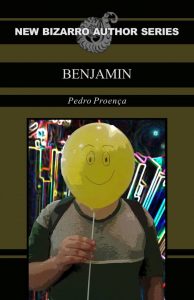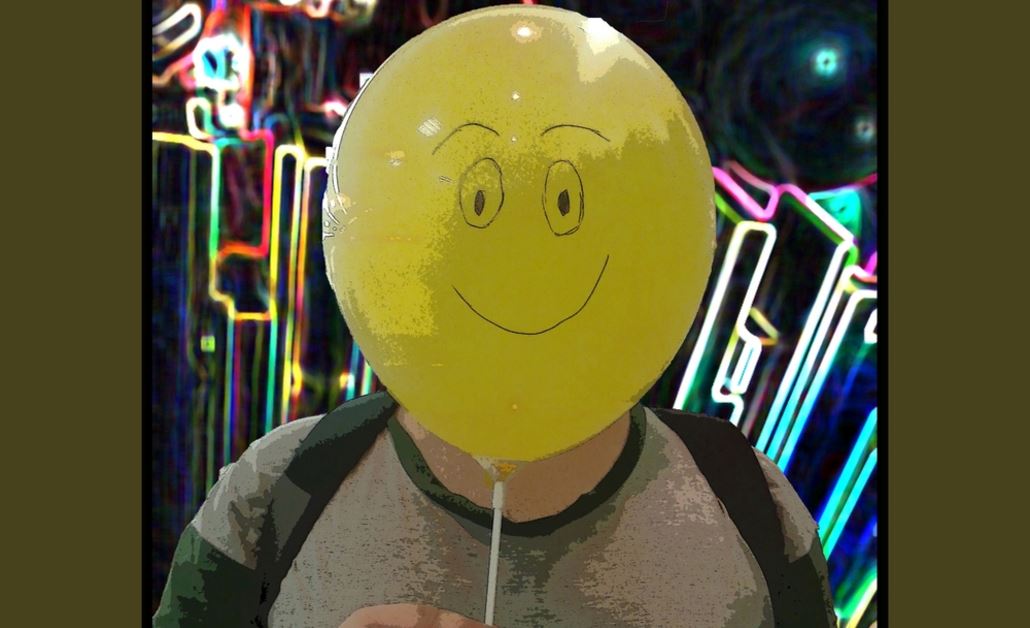 Benjamin is a balloon. Because he’s incapable of moving around on his own, he needs the help of an obese boy with no head to get around. He used to live in a bookstore in the mall, but after the owner is captured by green men and fed to the monster who lives in the toilets, he’s forced to wander the mall with the boy.
Benjamin is a balloon. Because he’s incapable of moving around on his own, he needs the help of an obese boy with no head to get around. He used to live in a bookstore in the mall, but after the owner is captured by green men and fed to the monster who lives in the toilets, he’s forced to wander the mall with the boy.
“Green men walk through the mall at night. Benjamin watches them from his spot behind the window. They are just walking about, like they’re window shopping. One of them stops in front of an electronics store, and signals another to come have a look. He waves excitedly, rushing his friend, like the most interesting thing in the world is on display right before their eyes.”
Proenca’s debut novella is an odd and disorienting work that more than earns its category as “bizarro” fiction. It has elements of fantasy, science fiction, humor, and metafiction but doesn’t fit neatly into any of those categories.
Benjamin is difficult to summarize. It’s a short book, but there is a lot going on. From Benjamin’s owner disappearing, to the mall seeming to exist outside of reality, to Benjamin stepping outside of the book itself, it’s a lot to take in. For example, Benjamin’s true nature is never really discovered. He’s a balloon with a drawn on face who seems to have just become sentient. However, many around him seem to perceive him as being someone else. Karen, the bookstore owner, believes him to be her deceased husband. A girl with no nose he meets believes him to be the author of a book called The Postman Killed My Dog. Benjamin never really discovers whether he is the author of the book or not. After all, he’s too busy in his own book.
There are several metafiction elements in Benjamin. At one point, we read an excerpt from the book that Benjamin may or may not have written. At another, Benjamin steps outside of the Benjamin novella itself. It’s appropriate, as a monster haunting the mall he lives in is destroying reality itself. The constant shifting of reality may be a point of frustration for some readers, but it helps to build the hazy and dreamlike atmosphere of the story.
The biggest problem with this book is that the copyediting is incredibly shoddy. It seems like there’s a typo on every other page. It’s especially egregious because the book isn’t even 90 pages. Even books from major publishers have one or two mistakes in them, but here it’s very distracting. Hopefully, a future edition of this book will clean these up.
DISCLAIMER: Pedro is an occasional contributor to Cultured Vultures.
Some of the coverage you find on Cultured Vultures contains affiliate links, which provide us with small commissions based on purchases made from visiting our site.

